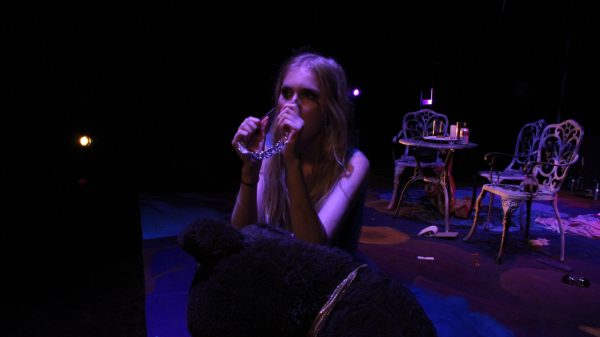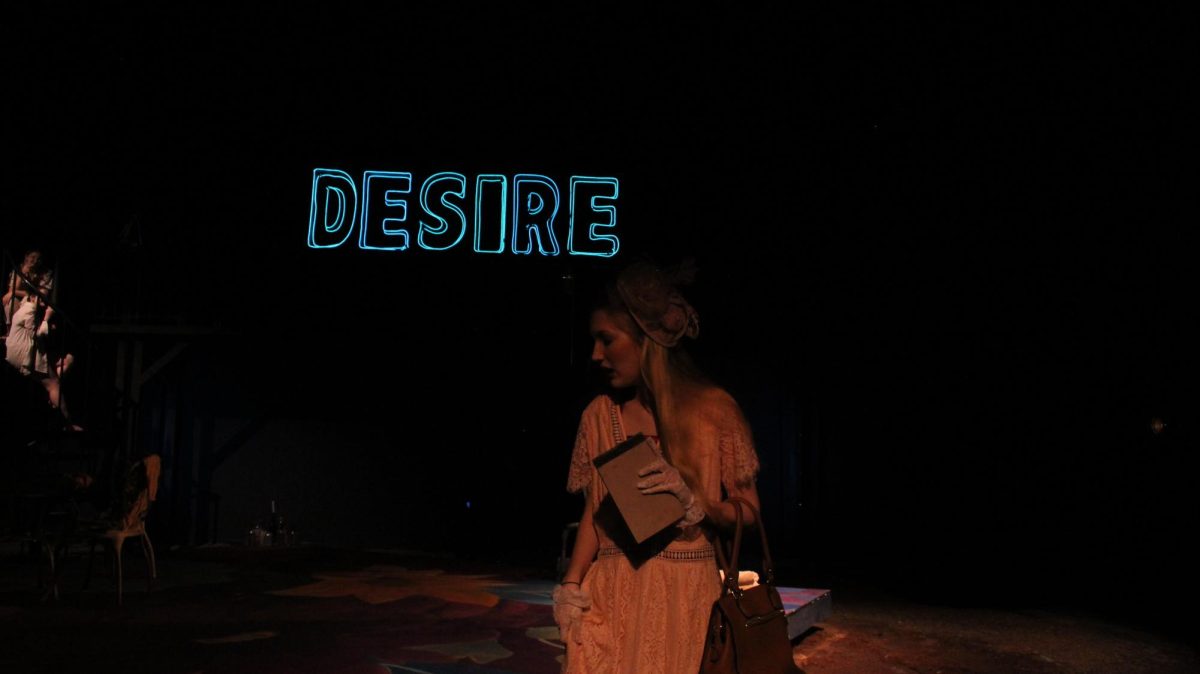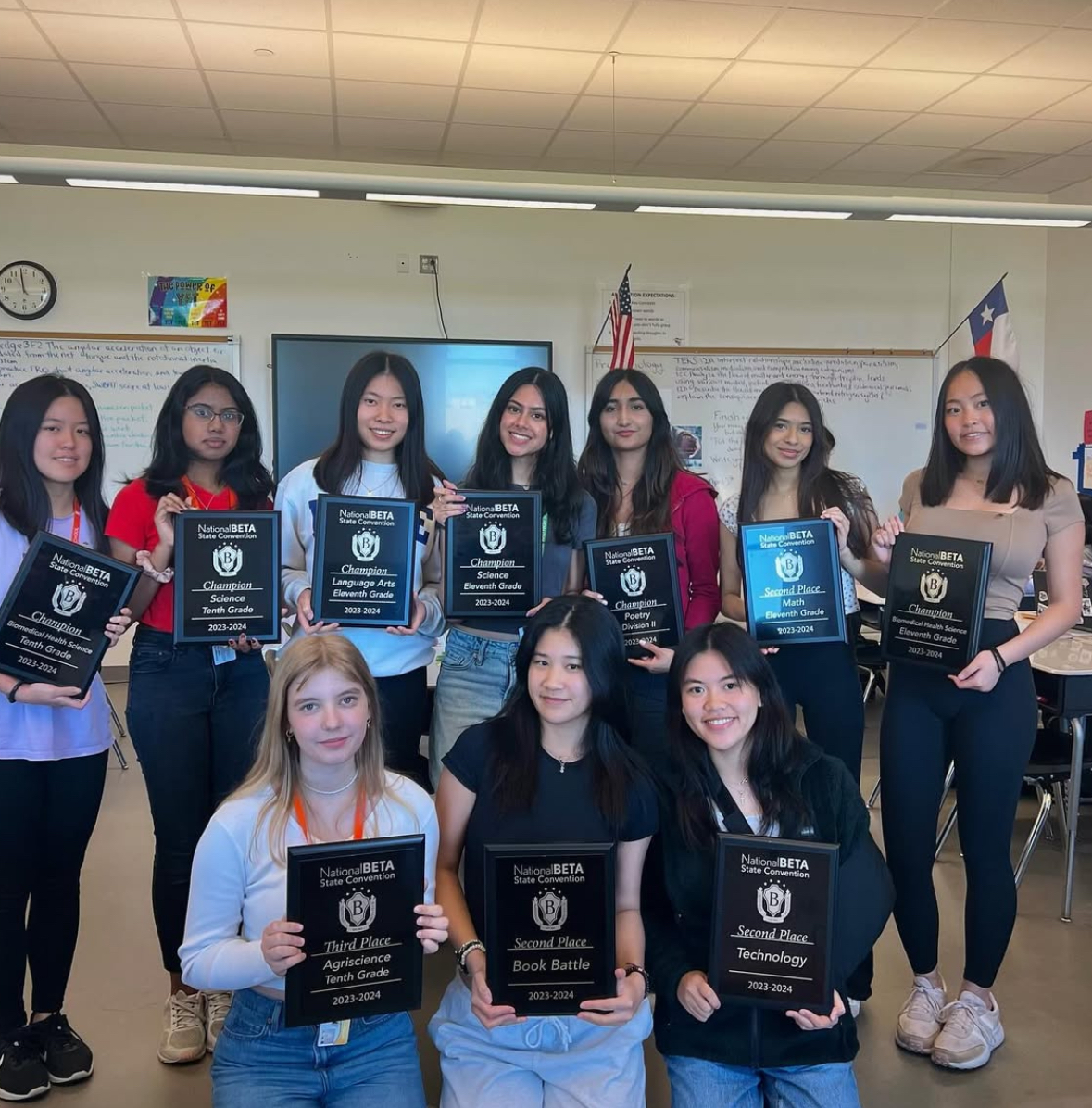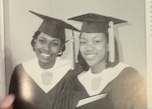Emerson Campbell’s journey into the world of theater began in third grade at the Hits Theater in Houston.
“It wasn’t like I made decisions at that age. It was more like, ‘Oh, do you want to do this thing with your friend?’ Then I did, and I guess I liked it,” said Campbell.
Nevertheless, her early exposure to the world of theater laid the foundation for a passion that would later greatly influence her life in high school and out.
The stakes were high when Campbell got into Carnegie, her first choice despite reservations. She recounts a sentiment echoed by many. She had originally hoped to get into HSPVA.
“Everyone told me ‘Carnegie is gonna kill you,'” Campbell said. “In my heart, I wanted to go to HSPVA because the person who had introduced me to theater was going to HSPVA and I couldn’t imagine not going there.”
However, she and her parents had come to an agreement: if she got into Carnegie, it was meant to be.
“I was actually devastated when I got into Carnegie,” Campbell said. “It was a lottery. We knew it was the best school hypothetically in the entire state. So I put it as my first choice.”
She was still very apprehensive when everyone kept on telling her it was a mistake.
“You are going to reap the day that you chose Carnegie’ [everyone would say], and I’m like, Oh my gosh, it’s gonna be hellish,” Campbell said, “So when I got into Carnegie… I definitely broke down crying.”
She didn’t know a lot about the theater department at Carnegie until she got to the school, and even then it was a limited experience because of the pandemic.
“I never really thought about Carnegie in terms of its theater,” Campbell said. “I stayed at home that whole year. I couldn’t bring myself to do anything. I had a really poor state of mind during COVID. I didn’t begin theater at Carnegie until my sophomore year,” Campbell said.
It wasn’t until “Mr. Burns” that she truly understood the unique dynamics of the Carnegie Theater Department. Unlike her previous experiences in adult-run productions, the students handled every aspect, from building sets to managing shows.
“I’ve never seen kids put on displays of leadership. They’re grinding the metal, putting up the lights, stage managing—the only adult is Mr. Savage,” Campbell said.
The experience marked a shift in her perspective, leading her to commit to Carnegie for future shows. She even placed in the Solo Musical performance IE when she went to Thespians this year.
“I didn’t really get serious about emotion in theater until I went to a workshop at the Texas Thespian festival,” Campbell said.
The turning point came when she grasped the essence of acting as feeling from the inside out to fully embody a character. This helped her in her title role in Carnegie’s most recent play, “A Streetcar Named Desire.”

The play centered around Blanche, her sister Stella and Stella’s husband Stanley. It takes place in late 1940s New Orleans as the ideal of the old south becomes obsolete in the new industrialized era. Blanche is a southern belle struggling to accept many traumas she has experienced, along with having to keep up with the rapidly changing society of that time.
Blanche, the character Campbell portrayed, offered a perfect blend of campiness and complexity, pushing Campbell to confront vulnerability in a way she had never done before.
“I really related to Blanche; the dichotomy between reality and escapism really caught my eye,” Campbell said.
Blanche’s ability to infuse ordinary things with a sense of wonder mirrored Campbell’s own inclination towards escapism as a survival mechanism.
To prepare for the role, Campbell tapped into the emotions and mind of Blanche’s character, adding her own subtext to each monologue. The struggle between fantasy and reality became a central theme in her portrayal. Campbell’s meticulous approach extended to adopting a transatlantic accent, emphasizing the facade Blanche presents to the world.

“I looked up transatlantic accents because I knew I wanted it [her accent] to be almost movie-like because, it’s not real… the transatlantic accent is fake. They did it for TV.” Campbell said, “I thought it would be really representative of her character where she’s trying to fight everything in order to be this fantasized version of herself.”
Emerson’s journey with “A Streetcar Named Desire” wasn’t without its challenges. Scene 10, a pivotal moment in the play, required a level of vulnerability she had never experienced. She describes the first run-through when emotions overflowed, and the rawness of the moment left her in tears.
“The first time we [ran through the scene] the feeling of getting that [dress] off of you and the crown off of my head. It was so invasive. When it’s physically happening. You’re not necessarily imagining it physically. Like the energy was there and I just started sobbing in the middle of this beautiful chaotic music that was playing. That was probably the most vulnerable (situation) I’ve ever been in my life. In terms of how real it felt,” Campbell said
To handle sensitive scenes, an intimacy coordinator became an integral part of the production. “A Streetcar Named Desire” deals with many emotional scenes and difficult topics as the audience slowly watches Blanche lose her mind in her fantasy. This play brought Campbell to emotional peaks she hadn’t experienced before.
“That was the first time I’ve ever been able to get that emotional in a play,” Campbell said.
While her previous role in “Native Son” required toughness, the depth of emotion demanded by Blanche was a new, rewarding challenge. The role of Blanche posed unique challenges, pushing Campbell greatly. The character’s rapid emotional shifts required a level of vulnerability and emotional stamina that Emerson embraced as practice for reaching new heights in her acting.
“I focused on the accomplishment of allowing the character to slip in and be the character,” Campbell said.
Despite her nerves, opening night brought a sense of readiness for Emerson. She felt confident because she knew the story and knew that she would be able to portray Blanche to the best of her abilities.
Mr. Parker’s contextual insights, during AP English Literature as the class read through the play, proved useful to Emerson during her preparation. Understanding the nuances of the play’s language and insinuations enhanced her performance.
Campbell’s commitment to theater extended beyond her school productions. Juggling multiple shows, college applications, and various leadership roles demanded careful scheduling and prioritization. Despite the challenges, Campbell maintained a flexible approach, adapting her goals daily to ensure she stayed on track.
For Campbell, theater is a liberating experience, a chance to explore different lives and express vulnerability. While she loves theater, she sees it as part of a larger journey. Campbell envisions a future in international business.
She envisions using her business knowledge to support non-profit theaters and contribute to the growth of her childhood theaters. With a goal to bring her international perspective into the business realm, Campbell aspires to make a meaningful impact on the lives of those she cares about.
“I just love interacting with people and communicating. I think people trust others with business knowledge. And if I can do anything to help and lead other people, I want it to be business.”











